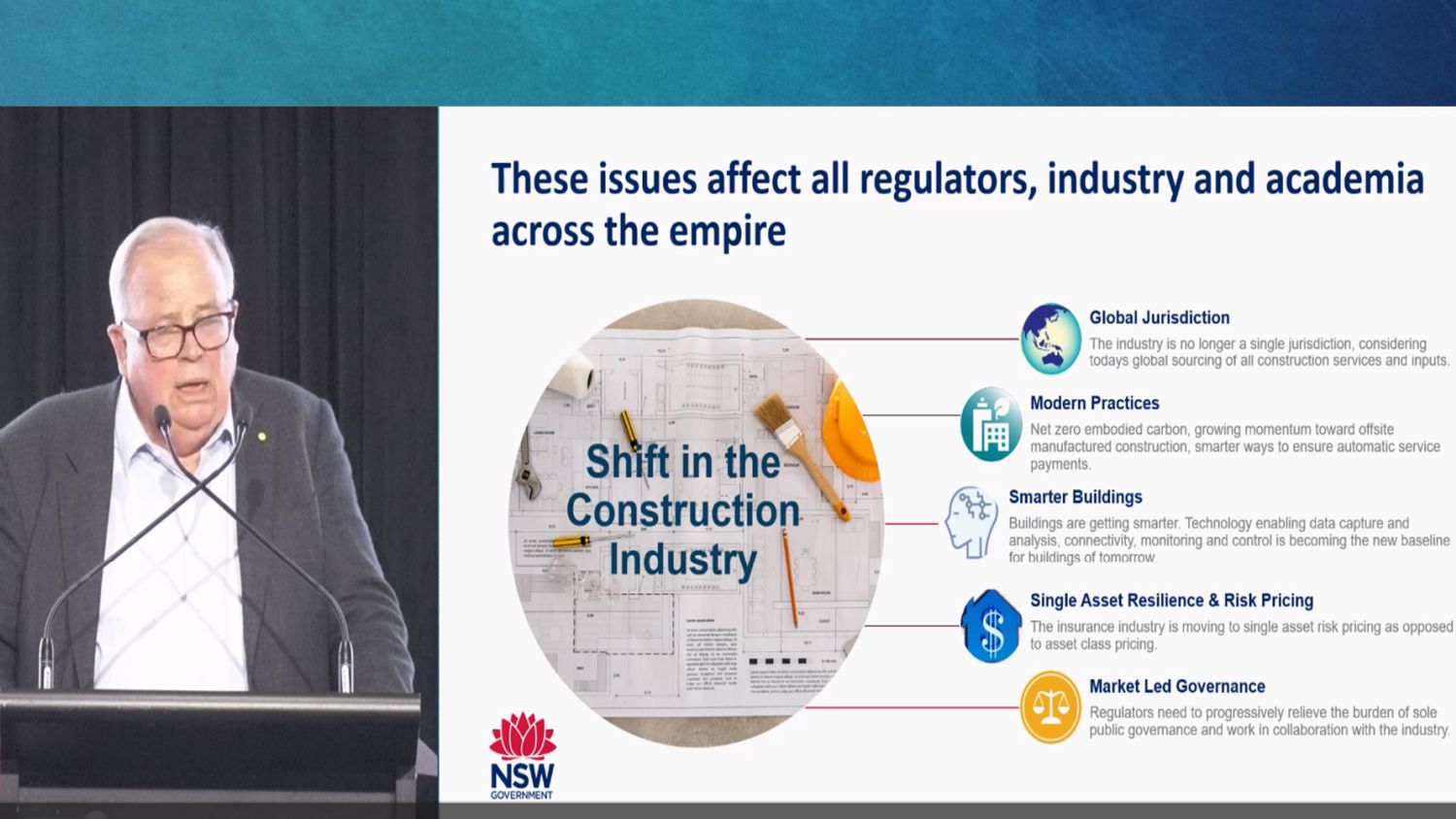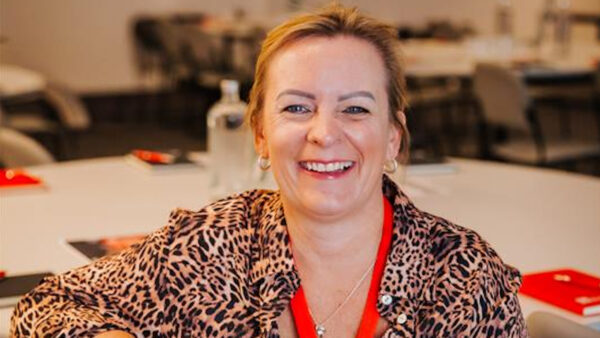
Once-in-a-generation reforms to the construction industry will mean students look back on buildings built in 2016-17 and ask “did we really stoop to that level”?
That’s according to the NSW building commissioner David Chandler, who was speaking to the Chartered Institute of Building’s (CIOB) members’ forum in Sydney, Australia, this week.
Chandler became the state’s first building commissioner in late 2019 with the mission of improving the quality of residential apartment buildings and restoring trust through the Construct NSW strategy.
Chandler and his team work with Fair Trading and the Department of Customer Service in NSW to protect homebuyers from defective building work, transform the regulator’s approach, and support and upskill the industry.
Earlier this month, the building commissioner took on extra powers and an extension of his remit to regulate the construction of boarding houses and age care facilities, in addition to apartments.
Chandler told the forum: “We think that the next generation will be much more proud [of the construction industry] and want to be custodians.
“I reckon that by about 2030 we will be able to explain to the cohort of students going through by then about where we started in 2016/17. We will show them pictures of buildings built in that time and they are going to look at it and say: ‘You are joking. Did we ever stoop to that level?’ Well, we did and let’s make sure that we never lose sight of that.”
Jettisoning old solutions
Chandler said: “It struck me when I came in as the building commissioner that everyone was focused on trying to put fingers in the holes of the dyke and fix 20-year-old problems with 20-year-old solutions and we have had to start to jettison those.”
One of the key changes in thinking that Chandler said he has tried to encourage is the idea that regulators operate in a single jurisdiction.
“Here in New South Wales, over 40% of all buildings now come from a global source. If you think that every building is still being made here, it is time to come out from under your rock and realise that we are nearly a quarter of the way through this century and we live very much in a global construction market,” he said.
To that end, the regulator has been developing multi-jurisdictional capabilities. That includes the Independent Construction Industry Rating Tool (iCIRT), launched last year by the NSW government, which uses a five-star system to rate builders on their apartment build.
It has also co-launched the ‘Building Trustworthy Index’ (BTI) with KPMG. BTI is a blockchain-based platform that allows property buyers, banks, insurers and regulators to review the provenance and quality of materials and contractors used in the construction of buildings.
Likening the developments to the adoption of the ‘golden thread of information’ in the UK, Chandler said: “All of that technology is building: a) outside government and b) with a global perspective. We are only dealing with people who can demonstrate to us that they have a go-to market strategy which is about a global footprint. We think NSW can become a very good test bed for this new capability. Maybe as a result Australia will get a bigger say in the global construction industry”.
Rebuilding relations with the UK
Chandler said that construction in Australia was starting to rebuild relations with the UK, and potentially New Zealand.
He said: “Looking back, these relationships have a lot of history. We have transferred the ability to get from the UK to here from 21 days to 21 hours. It is worth realising that the line across the globe is still as relevant as it ever was. In fact, it is likely to become more relevant in the future.
“If you draw a line between Christchurch and London, almost everyone along that line speaks English, has similar education capabilities and similar legal platforms. It is a good opportunity to remind ourselves that we should go back to some of these things that are old and make them new again. Why don’t we build on that?”
“We are both dealing with similar things. In the UK, you are dealing with your new compliance legislation and safety and in Australia we are doing the same sort of thing. So we have big cultural shifts going on in our industry and it seems to me that we should be doing as much of that together as possible.”











